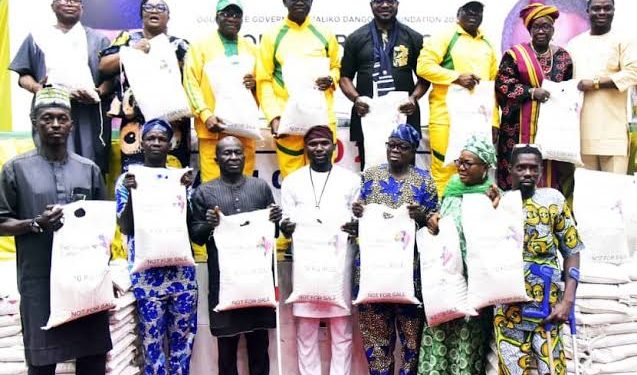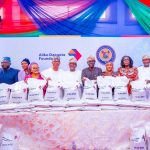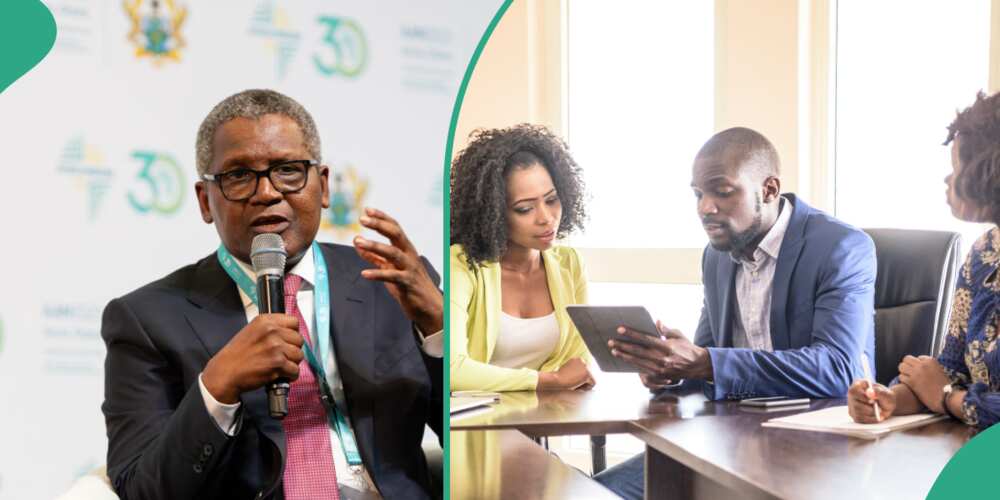As part of its National Food Intervention Programme, the Aliko Dangote Foundation (ADF) has begun the distribution of 40,000 10kg bags of rice across the 20 local government areas in Ogun State. The initiative is focused on reaching people living with disabilities and other vulnerable groups facing hardship in the current economic climate.
During the official flag-off ceremony in Abeokuta, Ogun State Governor commended the Foundation for the support, noting that it aligns with the government’s ongoing efforts to provide relief to residents. Represented by the Secretary to the State Government, the governor praised the longstanding collaboration between ADF and the state, especially in health, empowerment, and security.
He highlighted the Foundation’s role during the COVID-19 pandemic and its contribution to the state’s security with patrol vehicles and other support. He also warned against the resale of the donated food items, stressing that strict monitoring will be enforced to ensure the food reaches those in need.
The Commissioner for Special Duties and Intergovernmental Affairs also acknowledged ADF’s consistent corporate social responsibility efforts, particularly towards host communities.
Speaking at the event, Victor Edero, Head of Operations at ADF, said the Foundation’s intervention was designed to complement the federal government’s efforts toward food security. He explained that the economic downturn has made it increasingly difficult for many Nigerians to afford basic staples like rice, making such support crucial.
He reaffirmed the Foundation’s commitment to its three focus areas: health, empowerment, and nutrition, and urged fair distribution to ensure all targeted beneficiaries receive their share.
The Iyaloja General of Ogun State expressed gratitude for the support and urged the Foundation to consider launching a loan scheme as a long-term empowerment strategy to fight poverty in the state.
Representatives from the community, including persons with disabilities, traders, and youth groups, lauded the initiative, stating it was a clear example of how public-private partnerships can be harnessed to ease people’s burdens and promote inclusive development.









